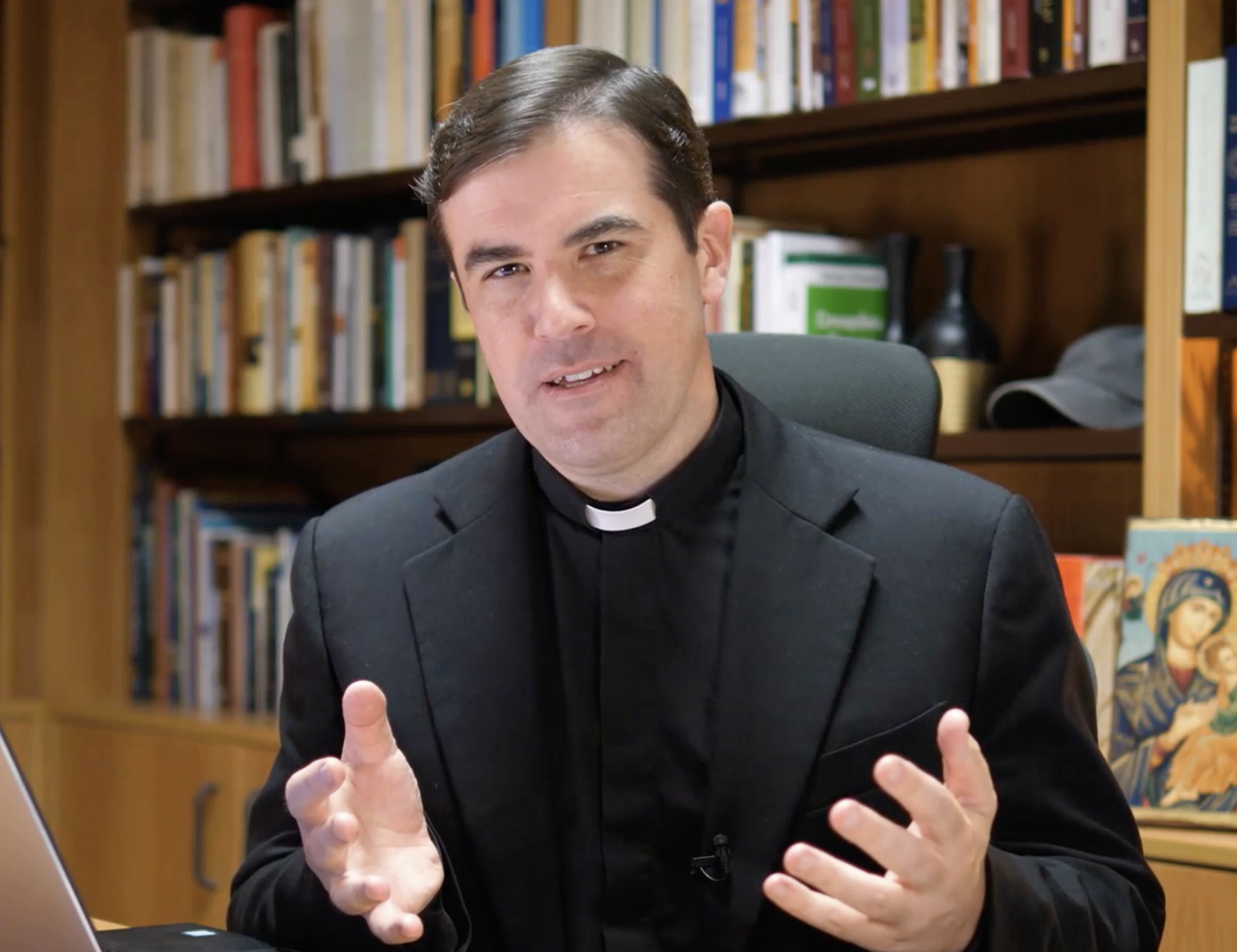Today’s guest post is by Isaiah Hoogendyk, language editor for the content innovation department.
I have previously written articles discussing new or existing features in the desktop version of Verbum. Today I’d like to talk about the surprising power of the Verbum iOS app for iPhone and iPod touch (with parenthetical Android notes).
A couple of months ago, I was attending the fourth class of the Catechetical Certification Program, and I learned about a Greek word that’s used in the New Testament and mentioned in the Catechism: parrhesia (keep reading if you want to know how this word is pronounced). Because it’s actually transliterated Greek, I was curious if I could easily figure out the original Greek word behind parrhesia. From there, could I also learn about its meaning and usage in the New Testament, or where it’s used in the Catechism? Furthermore, could I do all this from my Verbum app?
First, I started by typing the word in the search box. The top two hits indicate that the original Greek is παρρησία. The second hit is one that should come up for anyone with the Verbum Scripture Study and above base package. “TLNT” stands for the Theological Lexicon of the New Testament, an excellent resource for doing original-language studies of the Scriptures, especially if you want to learn more about the history of a word’s usage, both in and out of the Bible. But importantly, it transliterates the Greek and Hebrew, so there’s no need to be proficient in those original languages.
After selecting that hit, I went back a page to find the beginning of the entry. Here, I tapped and held “παρρησία” and then selected the “Look Up” (“Info” on Android) button.
After tapping “Look Up,” I tapped the button to jumpstart a Bible Word Study on “παρρησία.”
Here I can easily learn the meaning of parrhesia: “confidence.” (I can also get a quick pronunciation by tapping the speaker icon next to the word: “par-ray-see-uh.”)
Scrolling down, I find a colorful graphic that shows the different ways the Greek word is translated in the RSVCE. Tapping the reddish section shows the passages that translate παρρησία as “bold, boldly, boldness,” including how the apostles Peter and John had parrhesia when healing a cripple at the Temple gate and subsequently preaching the Gospel.
The last task I wanted to accomplish was to find this word in the Catechism of the Catholic Church. Back in the Search panel, my 10th hit (I. “We Dare to Say”—CCC) points to a wonderful paragraph on the Lord’s Prayer:
This power of the Spirit who introduces us to the Lord’s Prayer is expressed in the liturgies of East and of West by the beautiful, characteristically Christian expression: parrhesia, straightforward simplicity, filial trust, joyous assurance, humble boldness, the certainty of being loved. (CCC 2778)
This is in reference to the priest’s prayer in Mass before saying the Our Father: “At the Savior’s command and formed by divine teaching, we dare to say . . .”
And so, during this Lenten season, during which we are called not only to fast and give to the needy, but also to pray, let us dare to call God “Abba Father,” knowing that he provides for our every need, and that he loves each one of us and calls us his children. With this parrhesia, let us “draw near to the throne of grace, that we may receive mercy and find grace to help in time of need,” as it says in Hebrew 4:16. And may we, with all παρρησία, be living witnesses of the Good News of Jesus Christ, in a world that so desperately needs a Savior.











Great information. It is rewarding to see more clearly each day the power of Verbum. I look forward to trying out some of the techniques.
When I do look up, I get “No information available”. I do have the button below, that allows for Bible Word Study. How come I get no lookup?
Don,
I am sorry to hear it isn’t working. I cannot be sure why it isn’t working in your specific case. I encourage you to call our customer service at 800-875-6467 for specific trouble-shooting help.
If you’d like to post a response when they help you figure it out, I would love to read it. I hope you get it figured out!